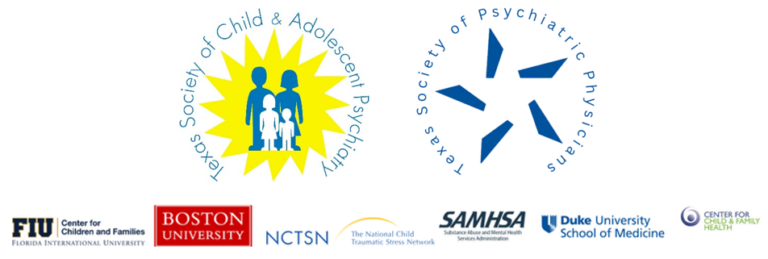
Virtual PFA Training
Registration Fee Schedule:

Dr. Robin Gurwitch, a Clinical Psychologist, is a Professor in the Department of Psychiatry and Behavioral Sciences at Duke University Medical Center, Duke University School of Medicine, and the Center for Child and Family Health. Dr. Gurwitch specializes in work with children, particularly those considered at-risk. Since the bombing in Oklahoma City in 1995, she has devoted much time to understanding the impact of trauma and disaster on children and ways to increase resilience. Dr. Gurwitch has numerous scientific publications and presentations addressing these topics. She has responded to disasters /traumatic events, both nationally and internationally. She has helped to develop materials for the National Child Traumatic Stress Network (NCTSN), the American Red Cross, the U.S. Department of Education, and the American Psychological Association, among others, related to disaster mental health, secondary traumatic stress, and resilience. With a focus on these issues, Dr. Gurwitch has served on state and national committees and task forces as well as consulted with federal and state agencies and school systems. Among her appointments, Dr. Gurwitch served on the inaugural US Department of Health and Human Services’ National Advisory Committee on Children and Disasters.
Click here for full bio
A brief description (from the PFA Field Operations Guide): Psychological First Aid (PFA) is an evidence-informed modular approach to help children, adolescents, adults, and families in the immediate aftermath of disaster and terrorism. PFA is designed to reduce the initial distress caused by traumatic events and to foster short- and long-term adaptive functioning and coping. Principles and techniques of PFA meet four basic standards. They are: 1) consistent with research evidence on risk and resilience following trauma; 2) applicable and practical in field settings; 3) appropriate for developmental levels across the lifespan; and 4) culturally informed and delivered in a flexible manner. The PFA training will provide participants the knowledge and skills necessary to use PFA in the aftermath of disasters/terrorism with survivors.
Learning Objectives:
By the completion of the training, participants will be able to:
1. Discuss the purpose of PFA after disasters/terrorism
2. Identify who can provide PFA after disasters/terrorism
3. List at least 4 common reactions of adults/children after disasters/terrorism
4. List at least 4 of the 8 steps to PFA
5. Discuss the importance of self-care for the PFA-provider
Agenda
9:00 – 9:15 Welcome and Introduction
9:15 – 10:15 PFA Background and Guidelines for Delivery
10:15 – 10:30 Core Action #1: Contact and Engagement
10:30 – 10:45 Break
10:45- 11:30 Core Action #2: Safety and Comfort
11:30 – 12:00 Core Action #3: Stabilization
12:00 – 1:00 Lunch Break
1:00 – 1:30 Core Action #4: Information Gathering
1:30 – 1:45 Core Action #5: Practical Assistance
1:45 – 2:00 Core Action #6: Connection with Social Supports
2:00 – 2:45 Core Action #7: Information on Coping
2:45 – 3:00 Break
3:00 – 3:15 Core Action #8 Linkage with Collaborative Services
3:15 – 4:30 Provider Care
4:30 – 4:45 Wrap Up
4:45 – 5:00 Evaluation and Closing
CME PROGRAM GOAL / TARGET AUDIENCE This live activity has been designed in a format consisting of case study presentations, lectures and direct discussion to provide its primary target audience of Psychiatrists, as well as other specialties of medicine, with the most up-to-date, evidence-based data that can be translated into clinical practice. Information and data will address new developments in treatments and new directions in research to address the professional practice gaps of the learners and advance the physicians’ competence and effective use of targeted skills so that they may develop strategies to apply the knowledge, skills and judgement of the information presented in the educational activity into their practice. The learning objectives for this activity have been designed to address clinician competence.
NEEDS ASSESSMENT TSPP has incorporated into this CME activity the relevant educational needs concerning competence that underlie the professional practice gaps of our participants.
ACCREDITATION STATEMENT This activity has been planned and implemented in accordance with the Essential Areas accreditation requirements and policies of the Texas Medical Association (TMA) through the Joint Providership of the Texas Society of Psychiatric Physicians and the Texas Society of Child and Adolescent Psychiatry. TSPP is accredited by the TMA to provide continuing education for physicians.
CREDIT STATEMENT The Texas Society of Psychiatric Physicians designates this Live Activity for a maximum of six (6) AMA PRA Category 1 CreditsTM. Physicians should claim only the credit commensurate with the extent of their participation in this activity.
FACULTY AND PLANNERS DISCLOSURE POLICY The Texas Society of Psychiatric Physicians will disclose to participants the existence of any relevant financial relationships between faculty members, TSPP staff and members, who planned, authored, contributed to, and/or reviewed the content of this activity, and any commercial interest discussed in this educational activity. Disclosure will occur through written communication in the syllabus/handout material.
CANCELLATION POLICY: In the event of cancellation, a full refund will be made if written notice is received in the TSPP office by April 1, 2025, less a 25% processing charge. NO REFUNDS will be given after April 1, 2025.